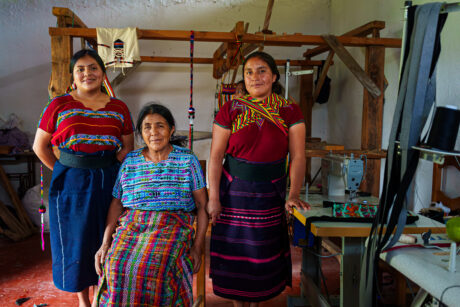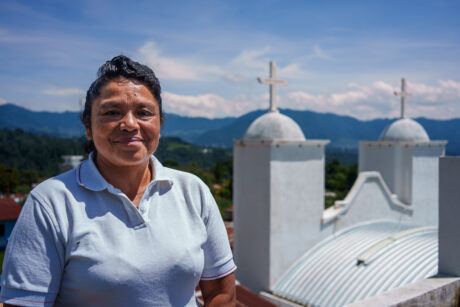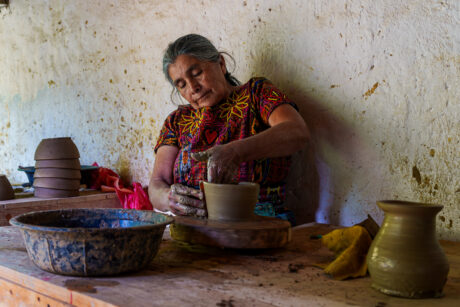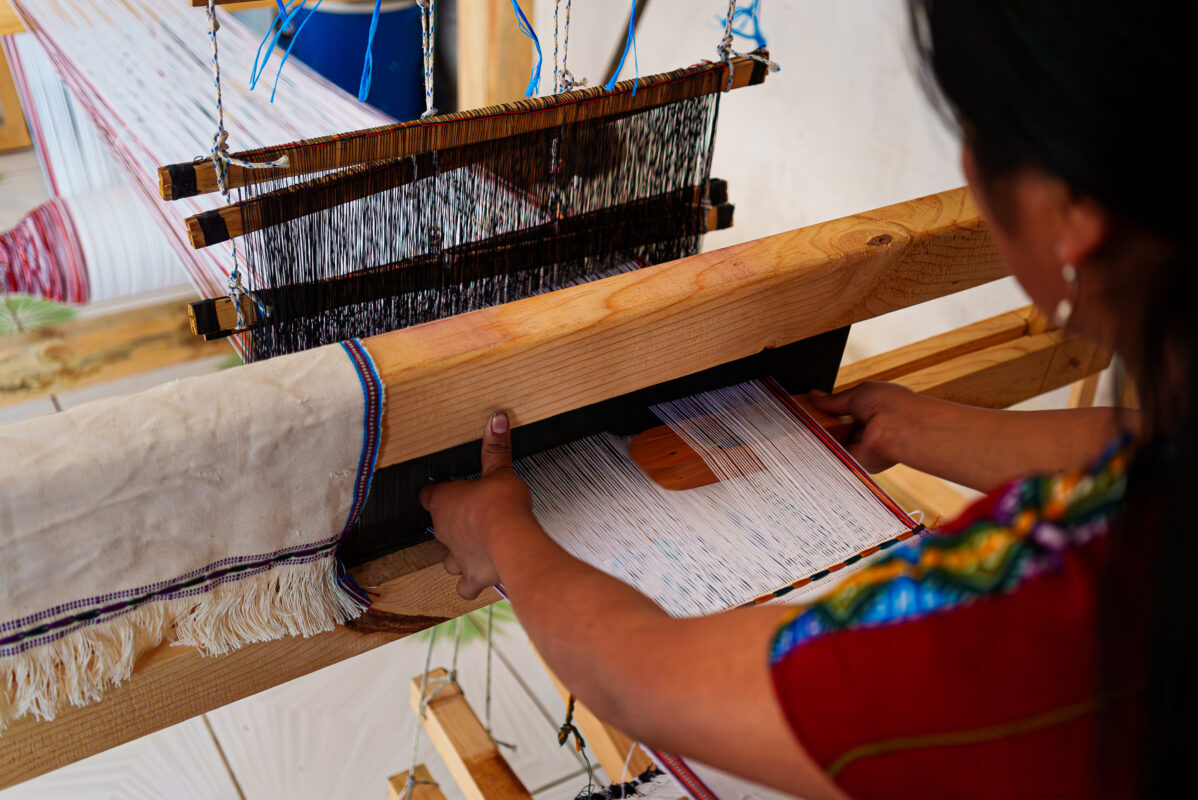Before she begins a healing session with survivors of violence against women and girls, Juana Tax first lights a set of colorful candles and places them in a circle of flowers as an offering to that day’s Nahual. For the Maya, Nahual is the energy, spirit or strength that guides a person each day.
“The Maya worldview has been a part of who I am,” says Tax, a Departmental Delegate for the Office for the Protection of Indigenous Women, DEMI is the Spanish acronym, in Totonicapán. “My parents and grandparents upheld traditional Maya practices and that was passed down to me.”
DEMI, and particularly Tax, have been strong partners in Totonicapán for the Peacebuilding Project. The Peacebuilding Project, known as Tejiendo Paz in Spanish, is a 6.5-year project funded by the U.S. Agency for International Development (USAID) to reduce social conflict and violence and strengthen social cohesion in the Western Highlands of Guatemala.
Implemented by Creative Associates International with PartnersGlobal and ProPaz, the Peacebuilding Project reaches 130 communities in 15 municipalities.
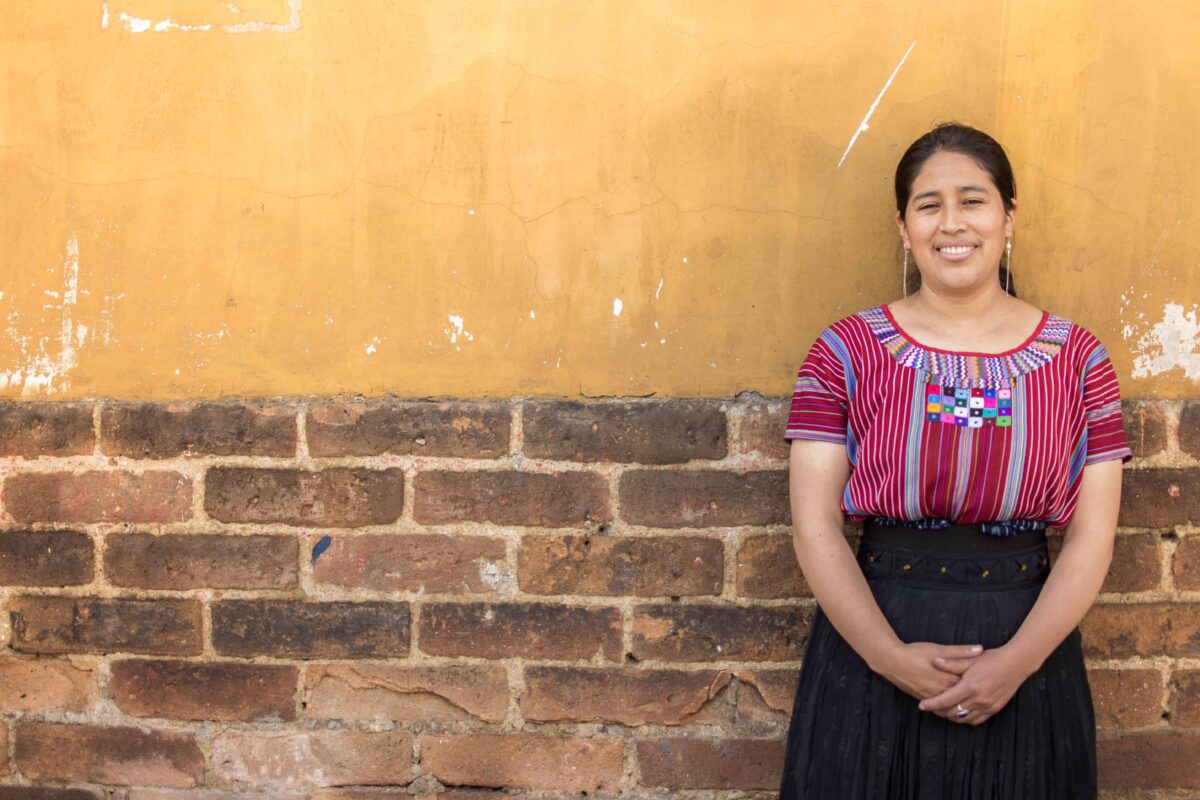
A holistic approach helps survivors move forward
Tax believes the Maya worldview and ancestral practices have good principles and strong values, all important elements to revisit and practice for social cohesion. For example, dialogue and consensus — two values of Maya practice — are key elements in the resolution of community conflict.
For eight years, Tax has been working for DEMI to support women who are survivors of violence against women and girls. DEMI helps victims using a holistic approach that often includes the support of a social workers, lawyers and psychologists as the women navigate the overwhelming legal system in Guatemala in search of justice.
“Why does the DEMI focus on women? Because women in our culture are in charge of educating our children,” she says. “We play a very important role within the family. If we educate and shape our children well, we can then impulse a change within our society, our community, our family.”
Healing leads to social cohesion
Seeing that there were few healing programs for survivors that integrated the Maya worldview and ancestral practices, Tax has been instrumental in creating self-help groups in conjunction with the Peacebuilding Project. These groups provide culturally relevant psychosocial services and healing support to women survivors of violence against women and girls.
“Women whose rights have been violated show resentment and emotional instability, issues that can stay deeply entrenched and cause survivors to be defensive and to have difficulty finding stability within the family,” Tax says. “The self-help groups support the women through their very important healing processes.”
By working to prevent violence against women and girls and help survivors heal from it, Tax is contributing the social cohesion of communities in Totonicapán.
“Cohesion means that we are united and coordinated and that together, we propose solutions to our problems,” Tax says.
